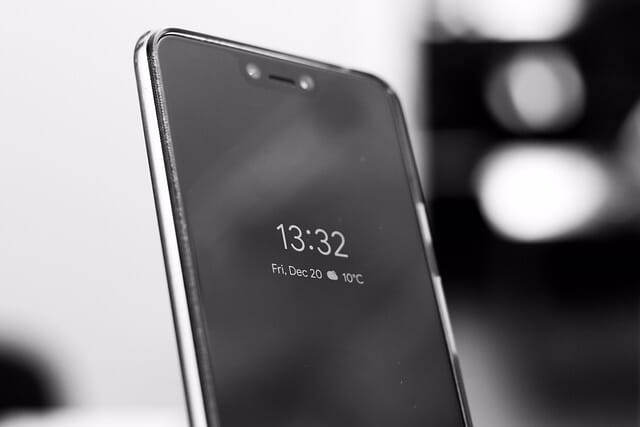
How Accurate Are Reverse Phone Lookup Services? A Deep Dive
Introduction
In today’s fast-paced world, where communication is often just a phone call away, the ability to identify a phone number has become increasingly essential. Whether you're receiving an unknown call or trying to validate a contact, reverse phone lookup services offer a convenient solution. But how accurate are these services? This article will thoroughly explore the accuracy of reverse phone lookup services, address common concerns, and provide Reverse telephone lookup insights into their effectiveness in identifying callers.
How Accurate Are Reverse Phone Lookup Services? A Deep Dive
When we discuss the accuracy of reverse phone lookup Landline lookup services, it’s vital to understand what these services entail. At their core, they allow users to enter a phone number and retrieve associated information such as the owner's name, address, and sometimes even additional details like social media profiles.
Understanding Reverse Phone Lookup Services
What is Reverse Phone Lookup?
Reverse phone lookup is a service that enables individuals to identify the ownership of a particular phone number. Users simply input the number into a search field, and the service returns information related to that number.
How Does It Work?
Most reverse phone lookup services gather data from multiple sources including public records, social media platforms, and proprietary databases. They compile this information into an easily searchable format.
Types of Information Provided
- Basic Identification: Name and address of the caller.
- Additional Details: Previous addresses, associated numbers, and sometimes even photos.
The Technology Behind Reverse Phone Lookups
Data Aggregation Techniques
Reverse lookup services use sophisticated algorithms to aggregate data from various sources. These can include:
- Public records
- Social media accounts
- Online directories
Machine Learning & AI Integration
Many modern services utilize machine learning and artificial intelligence to enhance their database accuracy. By continually updating their systems with new data points, they aim for improved identification accuracy over time.
Factors Affecting Accuracy of Results
Type of Number: Landline vs Mobile
Did you know that landline numbers often yield more accurate results compared to mobile numbers? This is primarily because landlines are usually registered under specific names and addresses while mobile numbers might be linked with multiple users over time.
Geographic Location Impact
The accuracy can also vary based on geographic location. Urban areas tend to have more comprehensive databases than rural regions due to higher population density.
Common Misconceptions About Reverse Phone Lookup Services
Are All Services the Same?
Not all reverse phone lookup services are created equal. Some may offer free basic searches but charge fees for detailed reports, while others may have extensive databases but lack real-time updates.
Privacy Concerns Addressed
Another common misconception is that using these services violates privacy laws. However, most reputable companies comply with legal standards by sourcing data from publicly available records.
Real-Life Applications of Reverse Phone Lookups
Identifying Unknown Callers
Imagine you receive an Telecom data unexpected call from an unknown number—this can happen at any time! Utilizing a reverse phone lookup service allows you to quickly identify who’s calling before deciding whether or not to answer.
Fraud Prevention Measures
For businesses especially, having access to reliable caller ID information can help prevent scams and fraud attempts by identifying suspicious calls.
Pros vs Cons of Using Reverse Phone Lookup Services
| Pros | Cons | |------|------| | Quick identification | Potential inaccuracies | | Easy-to-use interface | Costs for premium features | | Access to extensive data | Privacy concerns |
Evaluating Service Providers: What to Look For?
When considering which reverse phone lookup service to use, look for:
Comparative Analysis of Popular Services
Let’s take a closer look at some popular reverse phone lookup services:
- Whitepages: Known for its extensive database but offers limited free searches.
- AnyWho: Free service with decent results but lacks depth in detail.
- Truecaller: Primarily used as an app; great for identifying spam calls but less effective for detailed searches.
Using Caller ID Effectively With Reverse Lookups
Caller ID systems display incoming call information on your device screen; however, don’t always rely solely on this feature! Sometimes scammers manipulate caller ID information—a reverse phone lookup acts as your backup plan for verification purposes.
Phone Number Checker Tools: Why You Need Them
A robust phone number checker tool helps not only identify who called you but also validates if that number is active or has been reported for fraudulent activities—essential for avoiding scams!
Importance of Phone Number Validation in Business Contexts
For businesses reaching out via cold calls or marketing campaigns, ensuring that every contact is valid reduces wasted time on incorrect numbers while improving overall outreach efficiency!
Phone Verification Processes Explained
Phone verification adds an extra layer by confirming if the user accessing your platform truly possesses that number—crucial for preventing unauthorized access!
FAQs
How accurate are reverse phone lookup services?
The accuracy varies based on factors like the type of number (landline vs mobile), geographic location, and the provider's data quality. Generally speaking, many reputable providers claim over 90% accuracy in identifying landline numbers.
Are there free reverse phone lookup services?
Yes! Several free options exist (like AnyWho) but may come with limitations regarding detail depth or access frequency compared to paid versions.
Can I trust all reverse phone lookup providers?
No; it’s crucial to research providers' reputations through customer reviews and ratings before making any decisions regarding usage and payments.
Is my privacy protected when using these services?
Reputable companies adhere strictly to privacy laws by sourcing data from public records without breaching personal privacy policies—always check each service's privacy policy before use!
What should I do if I receive spam calls frequently?
Use apps like Truecaller alongside traditional lookups to filter potential spam callers effectively while keeping track of unwanted contacts!
ol2/hr3hr3/##
Conclusion
In conclusion, understanding how accurate reverse phone lookup services are is crucial in today’s telecommunication landscape filled with unknown callers and potential scams lurking around every corner! By leveraging reliable tools alongside good judgement about which service works best—you can effortlessly navigate mysterious incoming calls while keeping yourself safeguarded against fraudulent attempts at harassment or identity theft!

So next time you find yourself asking “How Accurate Are Reverse Phone Lookup Services?” remember that while no system is infallible—the right approach will give you peace of mind knowing exactly who’s trying to reach out!